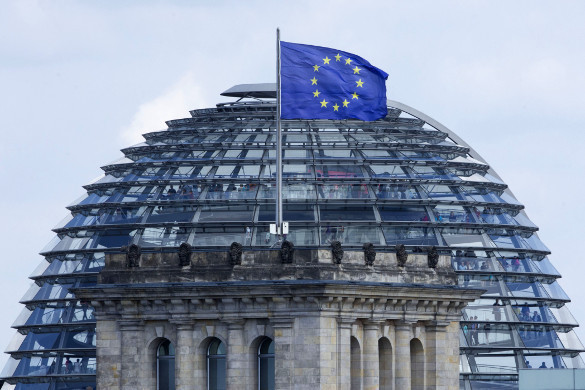Western politicians seek ways to make peace with Russia
Last week NATO Secretary General Jens Stoltenberg and Council of Europe's Secretary General Thorbjørn Jagland stated there was no desire for a Cold War with Russia. Head of the Institute of Political Science, Law and Social Development, MSHU named after M.A.Sholokhov, political analyst Vladimir Shapovalov commented statements of Norwegian politicians in an interview to Pravda.Ru.

Shapovalov stated that the abovementioned declarations were a very important signal, the evidence that they could be a collective opinion of the western society, its most reasonable and rational part that understands that the West doesn't need a conflict with Russia and that it is very likely in this situation. As well as the fact that relations between Russia and the western society have reached a certain decisive point.
"Far from everyone in the West realizes it. For example, Merkel and Grybauskaite do not realize that further deterioration in relations with Russia and putting pressure on it is fraught with not a situational crisis like now, but a full-scale and long-term conflict like it was during the Cold War. So this realization is actually the reason for the abovementioned politicians to make a statement that we can regard as an effort to start a dialog with Russia," the political analyst pointed out.
Besides public officials, former politicians have also showed their interest, for example, the retired European Commissioner for Enlargement and European Neighbourhood Policy Štefan Füle stated that the EU pursued an erroneous policy towards European integration of Ukraine. And the former U.S. Ambassador to Ukraine Steven Pfeiffer said that the Ukrainian government may lose support of the world if it continues to slow down reforms. Pravda.Ru correspondent asked the political analyst what that meant - was their conscience prod or they are just following the party line?
What does NATO want from Russia?
"We must pay attention to the sequence of statements. Private persons who were famous politicians or experts in the past were the first to make statements. Then they are followed by public officials. And that is not a coincidence. That is an attempt to feel out possible options for retreat on the way of normalizing relations with Russia," Shapovalov noted.
The correspondent followed up if it meant that a turn to a more well-reasoned stand on Ukraine could be expected soon?
"Hopefully it will happen because it is obvious that the resources for putting pressure on Russia are limited, the range of possible enforcement actions toward Russia is almost exhausted. It is clear that it is definitely not a question of military actions on the part of the West. Therefore, in this situation the West needs to seek compromises. Besides, it is necessary to understand that Ukraine has become the foremost subject of talks. But other subjects are not gone for good. For example, the Islamic State subject is more important and critical for everyone. That is obvious," the political analyst pointed out.
Also by the end of the interview the correspondent asked if it was worth for Russia to come back to PACE with the current Secretary General. After all, Thorbjørn Jagland recently stated that the modern world has become multipolar, there was no some single power capable of making decisions for everyone.
"I'd say that the modern world tends to become multipolar, it is moving towards it by leaps and bounds. As for possible leaving PACE, this is no detraction from Russia's role in the emerging multipolar world. Moreover, it allows it to take full advantage of becoming the very power pole establishing political and economic institutions around it, such as Eurasian Union, CSTO, BRICS," the political analyst summarized.
Translation provided by TNC Freelancer Group
Pravda.Ru
Subscribe to Pravda.Ru Telegram channel, Facebook, RSS!





